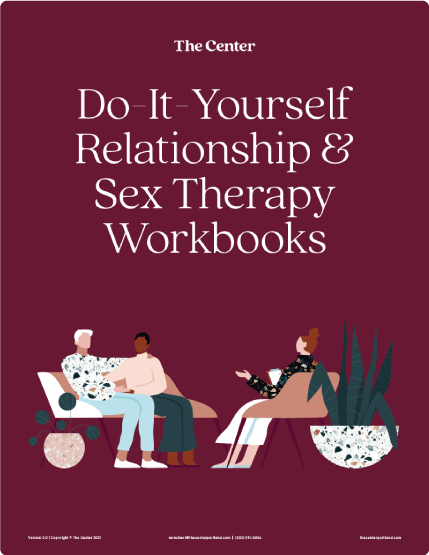How to Make Amends and Rebuild Trust After a Misunderstanding
Have you ever been in a disagreement, and the other person says, “I’m sorry,” but it feels surface-level? You can spot a phony “I’m sorry” from a mile away because you know when the other person is only apologizing because they feel obligated to.
And then there’s the kind of apology where someone genuinely means it, feels remorse and is committed to restoring the relationship. You can hear it in their voice and see it in their body language and actions. The difference is night and day.
Conflict, disagreements, and misunderstandings happen in all relationships. They’re bound to occur when imperfect people live their lives together. People can be annoying and frustrating, and make poor choices.
But what’s more important than when or how often you disagree is how you resolve the issue and restore the connection.
So, how do you master the art of apologizing and rebuilding trust after a misunderstanding? Let’s talk about it.
When Do You Need to Apologize?
There are many moments in a relationship when an apology is needed.
It’s not just the big, obvious mistakes like forgetting a birthday or saying something hurtful in the heat of the moment. Apologies are also for the small, every day slips—like not listening when your partner needed to vent or failing to follow through on a promise.
Here are some situations when an apology might be necessary:
- When you’ve said something hurtful. Even if it wasn’t intentional, words can sting. If you’ve hurt your partner with your words, acknowledging it can go a long way.
- When you’ve broken a promise. Whether it’s as big as breaking a vow or as small as forgetting to pick up milk, broken promises can undermine trust.
- When you’ve been inconsiderate. If you’ve been neglectful, dismissive, or acted in a way that didn’t take your partner’s feelings into account, apologizing can help set things right.
- When you’ve made assumptions. Jumping to conclusions or assuming your partner’s intentions often leads to unnecessary conflict. Apologizing shows that you value understanding over judgment.
The key is recognizing when your actions or words have caused harm, even if it wasn’t on purpose.
Apologizing is about taking responsibility for your part, no matter how small.
Different Types of Apologies
Not all apologies look the same, and sometimes just saying “I’m sorry” isn’t enough.
The best apologies go beyond words and are backed by actions that show your commitment to change.
Here are some different types of apologies:
- Verbal Apology: A heartfelt, verbal apology is often the first step. It should be sincere, specific, and acknowledge the impact of your actions. Use “I” statements to take ownership, like, “I’m sorry for not listening when you needed me.”
- Action-Based Apology: Actions often speak louder than words. If you’ve apologized verbally, follow it up with actions that show you’re committed to making things right. If you forgot a special date, plan something to make it up. If you didn’t listen, make a conscious effort to be more present in conversations.
- Restorative Apology: Sometimes, it’s not enough to say or show you’re sorry—you need to actively make amends. This might mean doing something extra kind for your partner, replacing something you broke, or taking on a task to ease their burden.
- Empathetic Apology: This is when you take the time to really understand how your partner feels. Being empathetic means not just saying sorry for what you did but also understanding how it made them feel. For example, you might say “I’m sorry I dismissed your concerns earlier. I can see now how that hurt you, and I want to do better.”
The type of apology you choose can depend on the situation and your partner’s needs. The goal is always the same: to show genuine remorse and a commitment to improving.
Rebuilding Trust After a Mistake
An apology is just the start. Rebuilding trust takes time, effort, and consistency.
Be Consistent
Trust is built on consistent actions over time. If you’ve apologized, make sure your actions align with your words. Follow through on promises, show up when you say you will, and be reliable.
Communicate Openly and Regularly
Keep the lines of communication open. Check-in with your partner about how they’re feeling and be willing to talk about the issue if it comes up again. Transparency shows that you have nothing to hide and are committed to working through things together.
Give It Time
Trust isn’t rebuilt overnight. Be patient with your partner and with yourself. It’s normal for doubts to linger, especially if the mistake was significant. Keep showing up, keep apologizing when needed, and keep putting in the work.
Be Willing to Listen
Sometimes, the hardest part of rebuilding trust is hearing how your actions affected your partner. Be open to listening without getting defensive. Their feelings are valid, and understanding their perspective will help you make amends.
A genuine apology has the power to heal wounds, mend connections, and strengthen your relationship.
You’re human. You’re never going to be perfect. You’re going to make mistakes. So, when you do, show up with humility, own your actions, and be willing to put in the work to make things right.
Disagreements and misunderstandings are a natural part of any relationship. Relationships ebb and flow through good times and hard times.
What matters most is how you handle the challenging times. It’s possible to turn conflicts into opportunities for growth and deeper connection.
So, the next time you find yourself at odds with your partner, don’t shy away from saying, “I’m sorry”—and mean it. Your relationship will be stronger for it.
If you’re struggling to move past a mistake or disagreement, consider seeking support from a couples therapist. We’re here to help you find a way to apologize genuinely, make amends, and build a relationship you cherish.







